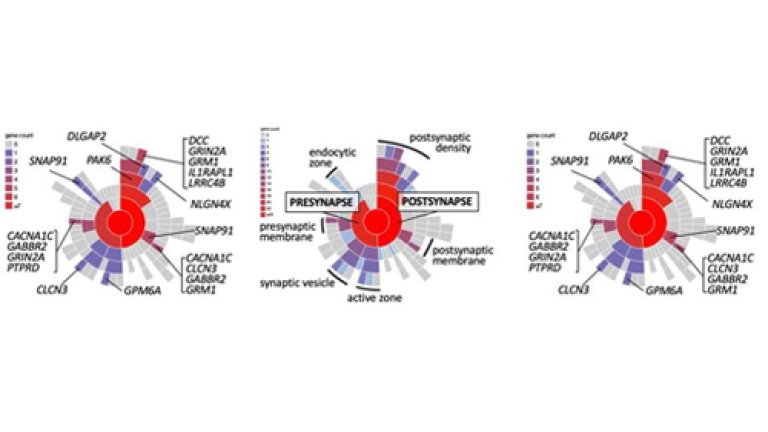A team of hundreds of researchers across 45 countries analyzed DNA from more than 300,000 people, whereof 76,755 people with schizophrenia and 243,649 without, to better understand the genes and biological processes underpinning the condition. The study, directed by the Psychiatric Genomics Consortium (PGC), found a much larger number of genetic links to schizophrenia than ever before, in 287 different regions of the human genome.
Co-operation with SYNGO
The SYNGO consortium, coordinated by the Center for Neurogenomics and Cognitive Research (CNCR) at Vrije Universiteit Amsterdam, was responsible for the functional annotation of synaptic genes among the observed genetic links. SYNGO detected 15 new links to pre- and postsynaptic genes. These new links open novel directions for research to understand how synaptic deficits contribute to the risk for schizophrenia.

"The SYNGO consortium is really proud to contribute to this global collaboration unprecedented in scope and apply its domain expertise on synapse biology for the understanding of schizophrenia” says Matthijs Verhage, professor of Functional Genomics at CNCR and co-coordinator of SYNGO. “The contribution of SYNGO to the analyses provides a path to new research into synaptic dysfunction in schizophrenia”, says Guus Smit, co-coordinator of SYNGO and director of CNCR.
Synaptic gene in schizophrenia
Although large numbers of genetic variants have been implicated in schizophrenia, the research showed that they are concentrated in genes expressed in neurons and their sites of contact, the synapses. It also turned out that a significant proportion of the genetic variants are involved in synaptic transmission. This may mean that a disturbance in signal transmission plays a role in schizophrenia. It has been shown that abnormal neuron function in schizophrenia is located in many areas of the brain. This explains the diversity of symptoms in someone with schizophrenia; including hallucinations, delusions, and problems with thinking clearly. The findings will allow researchers to focus on specific brain pathways in the ongoing hunt for novel therapies for this mental illness.
SYNGO consortium
The SYNGO consortium is funded by The Stanley Center of the Broad Institute of MIT, Cambridge, MT, USA; The Simons Foundation for Autism Research and the Vrije Universiteit and Amsterdam University Medical Center.

